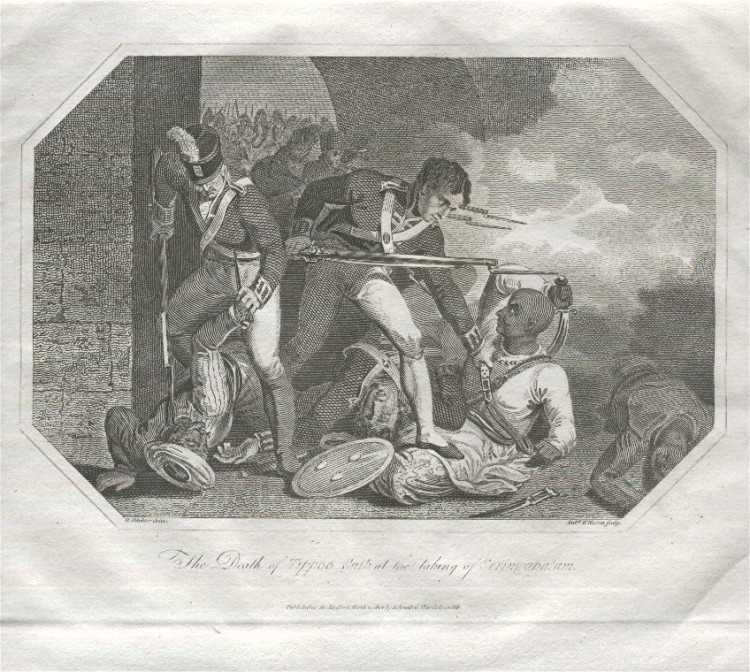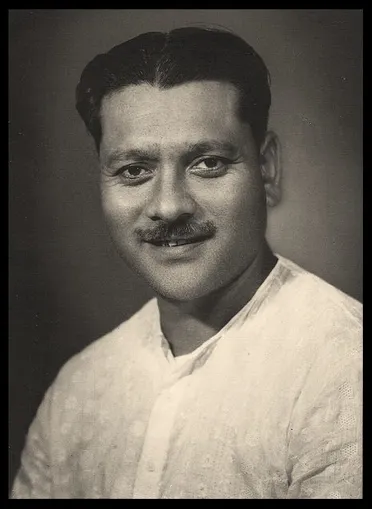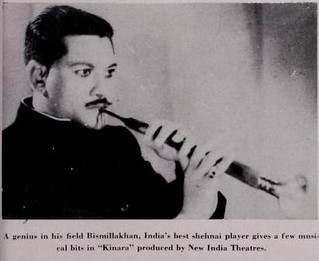
The untold story of #TipuSultan - Thread
Despite the fact that much has been written about Tipu Sultan and his period, many aspects of his life remain unknown.
Despite the fact that much has been written about Tipu Sultan and his period, many aspects of his life remain unknown.

While everyone knows Tipu despised the British and did everything he could to drive them out of India, few people are aware that Tipu wanted to send one of his sons to France for higher education and had even asked Frenchmen stationed in Srirangapatna for assistance. 

The French authorities had consented to Tipu's proposal, but they considered it would be preferable if Tipu's kids learned French before travelling to France. They recommended that Tipu's sons study French with a teacher in Srirangapatna before travelling to France. 

Another little-known fact about Tipu is that he was a founding member of the Srirangapatna Jacobian Club. After Tipu's death in Srirangapatna on May 4, 1799, a piece of paper unearthed in his library attested to this. 

"Proceedings of a Jacobin Club founded at Seringapatam by the French Soldiers in the Corps commanded by M. Dompart" was the title of the publication. 

Capt W Macleod, a Scotsman, confirmed to the paper's validity. The article named 59 Frenchmen who worked for the Sultan, whom it referred to as "Citizen Tippoo." It went on to say that on May 5, 1797, a Primary Assembly met in Srirangapatna to elect a President, Francois Ripaud. 

The "Rights of Man" were declared at the rally, and Ripaud lectured the attendees on Republican ideas. Following more considerations and formalities, the National flag was ceremonially raised on May 14th, and a small delegation was formally received by Tipu. 

Tipu, the "Citizen Prince," ordered a salute of 2,300 gun, all musketry, and 500 rockets from the Fort, with another 500 cannon firing from the Fort. 

"Do you swear hatred to all Kings, except Tippoo Sultaun, the Victorious, the Ally of the French Republic - War against all Tyrants, and love towards your Country and that of Citizen Tippoo?"
Ripaud challenged his co-patriots on May 15, 1797, when a Tree of Liberty was planted in his palace in Srirangapatna and crowned with a Cap of Equality, before Ripaud challenged his co-patriots: "Do They said, 'We promise to live free or die.'
Tipu then joined JClub as founding member. "Behold my acceptance of the standard of ur country, which is dear to me n to which I am related," he declared of France as he accepted membership. "It shall always be supported in my country, as it has been in the Republic, my sister!" 

As a result, the Sultan was dubbed "Citizen Tipu." Tipu Sultan was the only Indian king who was a member of the Jacobian club, and he is still the only Indian king who is a member of the club today.
Unfortunately, neither the French nor the club were able to prevent the British from conquering Srirangapatna and killing the Sultan. The Jacobian Club was inevitably disbanded after Srirangapatna fell.
Though the Jacobin Club at his court and afterwards in India faded, it had a huge impact on France. The society was called after the Dominican monastery where its members initially convened, and it led to the French revolution.
The club has thousands of chapters in France, with about 4.2 lakh members. Following the assassination of Robespierre, the club ceased operations.
The tree is no longer visible in Srirangapatna. Tipu's palace is in shambles.
The tree is no longer visible in Srirangapatna. Tipu's palace is in shambles.

There is no sign of the French connection in Srirangapatna now, except for the many graves of Frenchmen who fought alongside Tipu. 

The scrap of paper discovered in Tipu's library has also vanished. The club's ideas, however, were encapsulated in the French revolution and its slogan of liberty, equality, and fraternity.
Tipu's cavalcade in North Malabar was led by the French Commander Monsieur Lally.
Tipu's cavalcade in North Malabar was led by the French Commander Monsieur Lally.
Tipu, with the help of his local Moplah spies, carried out the dirty, undignified work of temple vault breaking, temple foundation excavating, and ornament snatching in Malabar, and the booty was gathered in a convenient location like bees gathering honey from blossoms far away.
Tipu's French friends remained neutral throughout his war with the British. However, for Tipu's battles against native kingdoms in Kodagu and Kerala.
Tipu decided to conquer Coorg by hook or by crook. So he hatched a cowardly plan with the the French. Tipu with the help of General M. Lally requested Kodavas to make peace stating his real enemies are the British and Marathas and not the Kodavas.
His French allies backed him up with military, financial, political, and diplomatic support, as well as modern weapons including a cannonade force. The unending iron cannon balls that can still be discovered in the Nalnad district of Kodagu attest to this.
He invited all unarmed Kodavas to a friendly feast. On the 13th of December 1785, around 125 thousand Kodavas congregated on the banks of the Cauvery River at Devattparamb. 

Coorg was turned into a cemetery as a result of this looting. In Devattparamb, almost 60,000 Kodavas were slaughtered, with around 65,000 Kodava survivors, including women and children, captured. 

Women were raped and children were forcibly converted among them. The massacre was so massive that the water in the Cauvery river turned red for 12 days in a row.
During the Malabar war, gold taken from temples was placed in the Treasury at Srirangapatanam. After defeating the Mysore army in 1799, the British lifted all of the gold and transported it to Europe on clipper ships. It is kept at the Bank of England's basement vaults. 

@Gkb19551
@DrUgrabhatah
@AjitsinhJagirda
@nair_hena08
@neerangautam
@shytigress
@chimnibai
@_ankahi
@SoniaGurnani19
@Ravichiruvolu1
@ArunDeshpande20
@JaganNKaushik
@GenPanwar
@SortedEagle
@nrajabpcl
@Visalmama
@LoveBharatvarsh
@VeerannaAthani
@IndianRajeshNCo
@bs_hariharan3
@DrUgrabhatah
@AjitsinhJagirda
@nair_hena08
@neerangautam
@shytigress
@chimnibai
@_ankahi
@SoniaGurnani19
@Ravichiruvolu1
@ArunDeshpande20
@JaganNKaushik
@GenPanwar
@SortedEagle
@nrajabpcl
@Visalmama
@LoveBharatvarsh
@VeerannaAthani
@IndianRajeshNCo
@bs_hariharan3
• • •
Missing some Tweet in this thread? You can try to
force a refresh




















